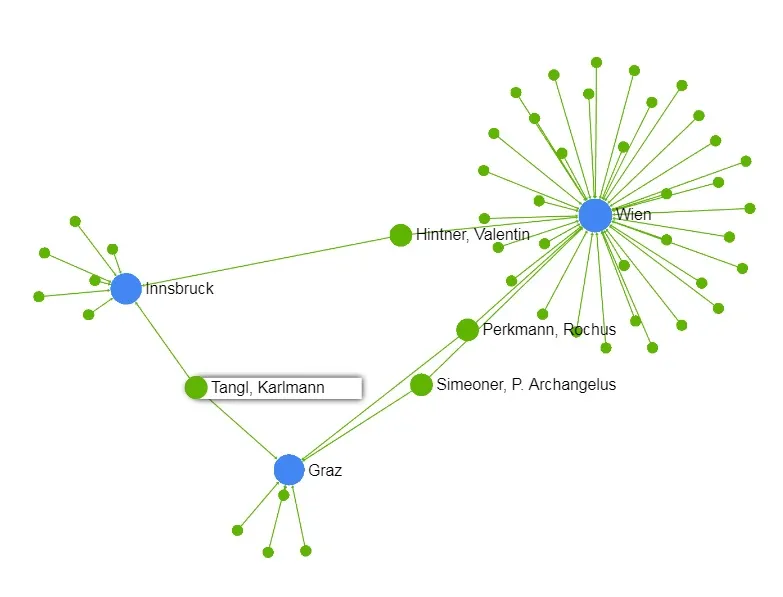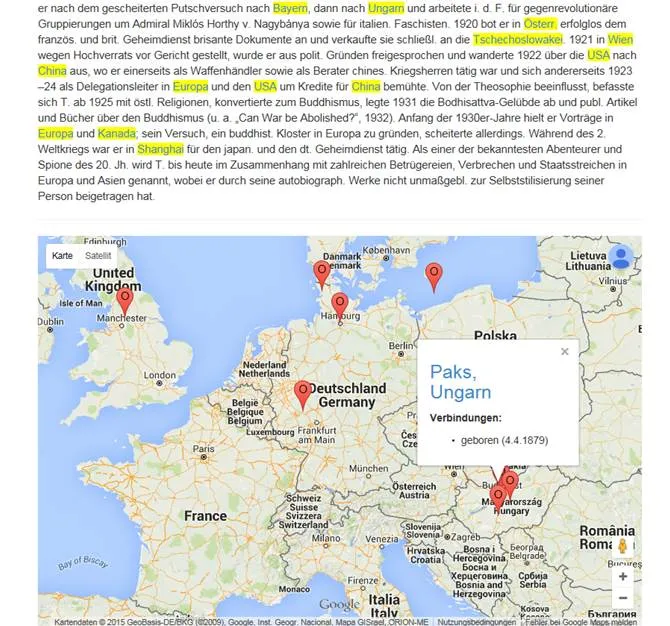
Mapping historical networks (APIS)
- Hosting organisations
- ACDH-CH - Austrian Centre for Digital Humanities and Cultural Heritage and ÖBL/INZ Institut für Neuzeit- und Geschichtsforschung
- Responsible persons
- Dr. Christine Gruber, ÖBL/INZ
- Start
- End
The Austrian Biographical Dictionary (Österreichisches Biographisches Lexikon/ÖBL) is the only large-scale lexicon covering life and career paths of important historical figures of the former Austro-Hungarian monarchy and the First and Second Republics of Austria. In APIS an innovative and state-of-the art digital environment will be constructed, by organizing 18.000 biographies in a new way, thus allowing researchers to take up interdisciplinary research questions. This is made possible through a sound mix of cutting-edge methodologies and the collaboration of three institutes of the Austrian Academy of Sciences (Institute for Modern and Contemporary Historical Research/INZ, the Austrian Centre for Digital Humanities/ACDH and the Institute for Urban and Regional Research/ISR) and a number of external partners. Making use of up-to-date semantic technologies (RDF, SKOS), ÖBL will be developed into an efficient research infrastructure accessible as part of the Link Open Data Cloud. The application of standard resources (GND, VIAF and others) assures that semantic enrichment of the data is complying with norms, and that data is reusable in future projects as well. APIS is going to be embedded in existing infrastructures such as DARIAH, CLARIN-ERIC and EUROPEANA, which provide access to research data produced in the project. Through the platform developed in APIS, data will be provided, upon which social and demographic analysis of forms and patterns of social elites’ migration can be realized. In addition to the social and migration analysis results, the project will also generate significant output with respect to visualization methods for the analysis of historical networks. Making use of modern text-technology and semantic approaches, the project creates a unique bridge between humanities studies and social sciences, while data policies (data will be made accessible under a Creative Commons license, the research environment will be publicly accessible) and project strategies give grounds to expect many follow-up research activities.
